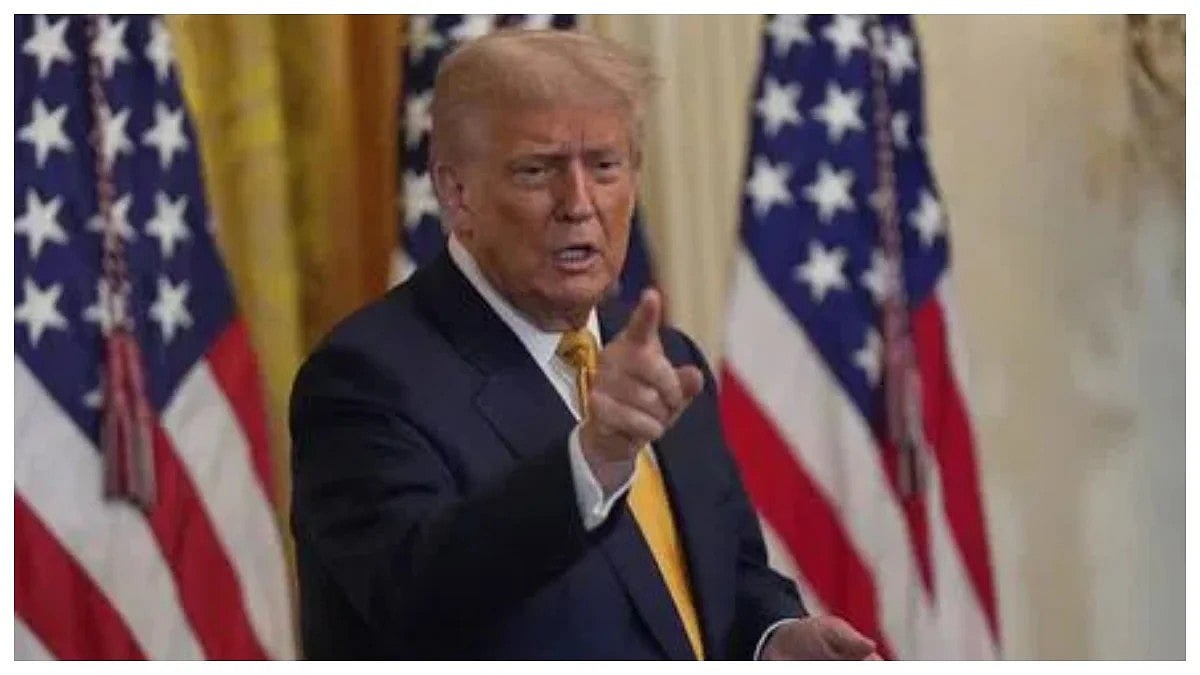Trump’s Nuclear Claims Expose Global Double Standards — And A Growing Threat For India
The credibility of US President Donald Trump is such that one often does not know whether to laugh or to cry over his statements, which are frequently couched in vagueness and bravado. During the entire Cold War period, neither the United States nor the Soviet Union used the N-word (nuclear), at least in public, to scare each other.

US President Donald Trump | File Image
The credibility of US President Donald Trump is such that one often does not know whether to laugh or to cry over his statements, which are frequently couched in vagueness and bravado. During the entire Cold War period, neither the United States nor the Soviet Union used the N-word (nuclear), at least in public, to scare each other.
Even during the Cuban Missile Crisis, arguably the tensest moment in modern history, leaders avoided throwing that word around. Yet Trump wields it casually, as if unable to distinguish weapons capable of annihilating civilisation from the guns American school students bring to campus to perpetrate occasional mayhem.
His latest claim that China, North Korea, Russia, and Pakistan have been conducting underground nuclear tests forces one to pause. If true, it is not merely another headline-grabbing remark but a strategic shock with serious implications, especially for India.
Take Pakistan, whose nuclear programme has been built on pilferage, espionage, clandestine deals, and covert assistance from China and North Korea. Islamabad has never been shy of violating international norms; it is also the only nuclear-armed nation that routinely threatens first use at the slightest provocation.
So if Trump genuinely knows Pakistan has been conducting secret nuclear tests, what has he done to restrain the rogue state? The question is unavoidable. After all, he has rolled out the red carpet for the Pakistani Army chief at the White House and lavished praise on him on multiple occasions—gestures his predecessors would have replaced with a stern warning or diplomatic pressure.
Since India first demonstrated its nuclear capability in 1974, it has conducted only five underground tests—all in May 1998. Immediately thereafter, Prime Minister Atal Bihari Vajpayee unilaterally declared a moratorium on further testing and affirmed a “no first use” doctrine.
India has honoured these commitments faithfully, even as its neighbours have reportedly built capabilities in the shadows. If Trump can be believed, China and Pakistan have conducted multiple covert tests over the years.
Has India taken cognisance of possible nuclear activity in its neighbourhood? In 1998, India’s nuclear establishment declared with confidence that “the tests had significantly enhanced its capacity for computer-simulated designs and would allow subcritical experiments, if necessary”. That is precisely the route other responsible nuclear states take: strengthening deterrence without destabilising the international environment.
India, which has placed some of the heaviest satellites in orbit, certainly possesses the scientific and technological prowess to keep its deterrence credible under laboratory conditions. The goal is not aggression but assurance—that India will not be caught off guard by hostile neighbours.
It is time for our defence establishment to reassure the public that the nation remains secure, alert, and scientifically prepared in a neighbourhood where nuclear irresponsibility, unfortunately, appears to be gaining traction.
Published on: Wednesday, November 05, 2025, 04:07 AM ISTRECENT STORIES
-
-
-
-
-